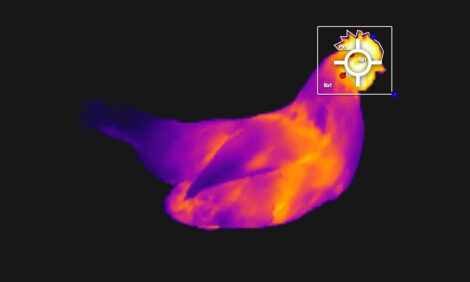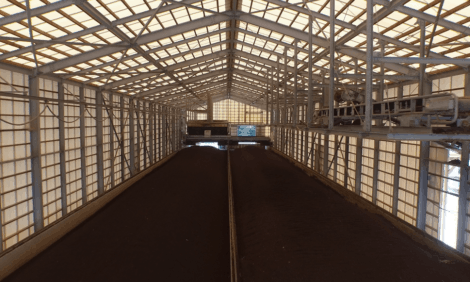



Influence of Whole Wheat and Xylanase on Broiler Performance
By R. M. Engberg, M. S. Hedemann, S. Steenfeldt, and B. B. Jensen, Department of Animal Nutrition and Physiology, Danish Institute of Agricultural Sciences - An experiment was carried out to study the effect of different forms of wheat (airtight silo stored whole wheat, conventionally stored whole wheat, and ground wheat included in pellets) and dietary xylanase addition on production results and gastrointestinal characteristics of broiler chickens.Abstract
Ileal viscosity, pancreatic digestive enzyme activities, and the composition and activity of the intestinal microflora were considered as response parameters.
Differences between the 2 types of whole wheat with respect to the various measured parameters were marginal, whereas distinct differences were found between pellet-fed birds and birds receiving whole wheat. Whole wheat feeding improved feed conversion ratio and reduced water consumption (P < 0.001).
Compared with pellets, whole wheat increased the relative weight of pancreas and gizzard and the dry matter concentration of gizzard content (P < 0.001). Whole wheat feeding reduced the pH in the gizzard contents (P < 0.01) and increased ileal viscosity.
The addition of xylanase reduced ileal viscosity in birds receiving whole wheat to the same level as in pellet-fed birds. Whole wheat feeding resulted in lower activities of amylase in pancreatic tissue (P = 0.054), whereas xylanase addition increased chymotrypsin (P = 0.030) and lipase activities (P = 0.052).
Whole wheat feeding resulted in lower intestinal numbers of lactose-negative enterobacteria (P < 0.05) and tended to reduce the ileal and cecal numbers of Clostridium perfringens (P is less than or equal to 0.08). It is concluded that whole wheat feeding stimulates gizzard function, which in turn prevents potentially pathogenic bacteria from entering the intestinal tract.
The study is published in Poultry Science 83:925-938, June 2004 edition
Source: Poultry Science - June 2004









